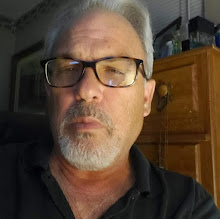Catholic theologian Hans Küng was buried April 16 in the
southwestern German city of Tübingen following funeral services. Küng, a native
of Switzerland, died on April 6 at the age of 93 (www.ncronline.org/).
The
foregoing excerpt is from the National Catholic Reporter. The article also reads as follows.
The world-renowned theologian planned the final ceremonies
himself, with the saying of prayers that he formulated and the performance of
cantatas by Johann Sebastian Bach and compositions by Felix Mendelssohn
Bartholdy. Due to ongoing pandemic restrictions in Germany, only a limited
number of people were present. The local television broadcaster SWR carried the
ceremonies live.
In the funeral sermon, Fr. Wolfgang Gramer said Küng had
fought for the freedom of God's children, including in his efforts to challenge
what he viewed as the wrongly understood dogma of papal infallibility. The
Vatican and the German bishops had withdrawn Küng's teaching license in 1979
partly because of the theologian's critique of the dogma (www.ncronline.org/).
I personally
never had the opportunity to meet Hans Küng, but if you are interested in
finding out more about him, it will not be too difficult to find a plethora of
material written about him or by him. The world of Theology and Ecumenism lost
a hero on April 6, 2021. I do not think I can share more about him than what
others have said. I strongly recommend reading more about him if you have never
done so. I certainly have found him very inspiring for many years.
The Catholic
Weekly said the following:
Hans Küng certainly had talent. His doctoral dissertation on
Karl Barth, arguably the greatest of 20th-century Protestant theologians,
became a pioneering book in ecumenical theology.
The Guardian published the following about
Küng:
Despite the impression that this self-confident, clever and
ever so slightly vain priest may have given, Küng was not one of nature’s rebels.
His chosen approach would have been to work from within, but the Catholic
church in his heyday was intolerant of such dissenting voices among its
priests. If the choice was silence or uneasy internal exile, he was not going
to bite his tongue.
When challenged about his maverick role in the history of
modern Catholicism, he remained fond to the end of quoting one of his heroes,
Pope Gregory the Great: “If scandal is taken as the truth, then it is better to
allow scandal to arise than to abandon the truth.”
As I said
before, it will not be too difficult to find a plethora of material written about
Hans Küng, or written by him. A warning, however, be prepared to be informed. I
really cannot say more than others who knew him well, so I will end here.
Regardless, it is an honor to do this brief homage to him. Rest in Peace, Hans
Küng. A final note: feel free to click on the links to the referenced articles
below to read more.
References:
https://www.catholicweekly.com.au/george-weigel-hans-kung-and-the-perils-of-fame/
https://www.ncronline.org/news/people/funeral-hans-k-ng-celebrated-ecumenist-great-spiritual-teacher
https://www.theguardian.com/world/2021/apr/08/hans-kung-obituary



